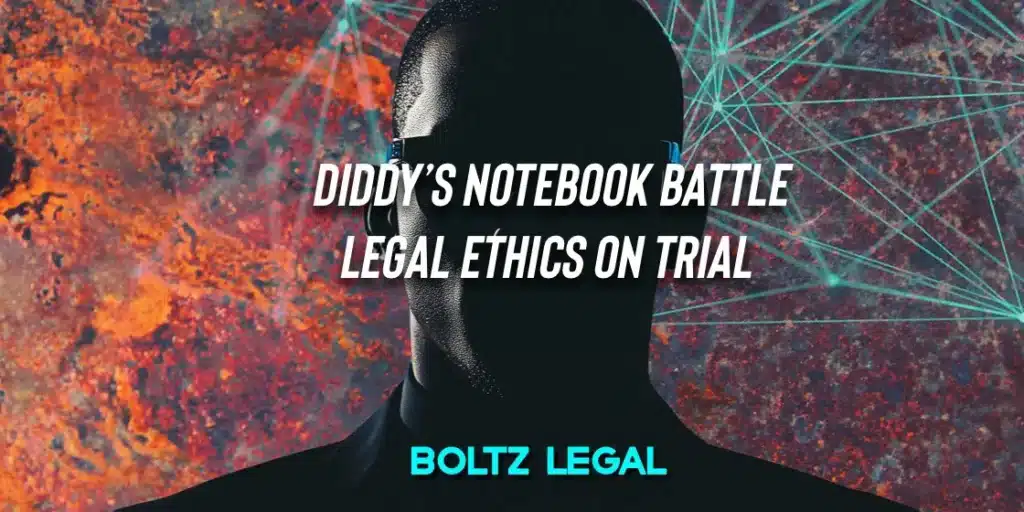In a case that has captured headlines, Sean “Diddy” Combs recently secured a legal victory highlighting the critical importance of attorney-client privilege and the ethical boundaries within evidence collection. This ruling serves as a stark reminder of the fine line prosecutors must tread in their pursuit of justice.
The Case Overview
Sean “Diddy” Combs, a music mogul and entrepreneur, found himself in a legal battle over the seizure of a notebook containing privileged communications with his attorney. Prosecutors argued the notebook was crucial evidence, but Diddy’s legal team contended its contents were protected under attorney-client privilege, a cornerstone of legal ethics.
The court ruled in favor of protecting the notebook, emphasizing that the integrity of privileged communications outweighs the prosecutorial need for evidence. This decision reinforces the sanctity of the attorney-client relationship, a principle that underpins the fairness of the justice system.
Understanding Attorney-Client Privilege
Attorney-client privilege ensures that individuals can openly communicate with their legal counsel without fear that their discussions will be disclosed. This confidentiality is crucial for the legal process to function effectively and ethically. However, challenges arise when prosecutors, in their zeal to build a case, overstep boundaries and inadvertently or intentionally breach this privilege.
Legal Ethics in Focus
This case sheds light on the balance between legal ethics and prosecutorial duties. While the justice system relies on zealous prosecution to uncover the truth, it also demands adherence to ethical standards that protect individual rights. The ruling in Diddy’s favor reaffirms that ethical lines must not be crossed, even in high-stakes cases involving public figures.
Broader Implications
For attorneys and clients alike, this case is a stark reminder of the need to safeguard privileged information. It also highlights the responsibility of prosecutors to respect these protections, ensuring the justice system remains both fair and impartial.
Key Takeaways for Legal Professionals
- Always safeguard privileged documents during litigation.
- Clearly mark communications as privileged to prevent disputes.
- Be prepared to defend the sanctity of attorney-client communications if challenged.
Why This Matters to You
Whether you’re a legal professional or someone navigating the complexities of a legal case, understanding the importance of attorney-client privilege is essential. This case serves as a potent example of how legal ethics are tested in real-world scenarios and the critical role they play in maintaining justice.
Today’s Insight:
“Ethics is knowing the difference between what you have a right to do and what is right to do.”
— Potter Stewart

